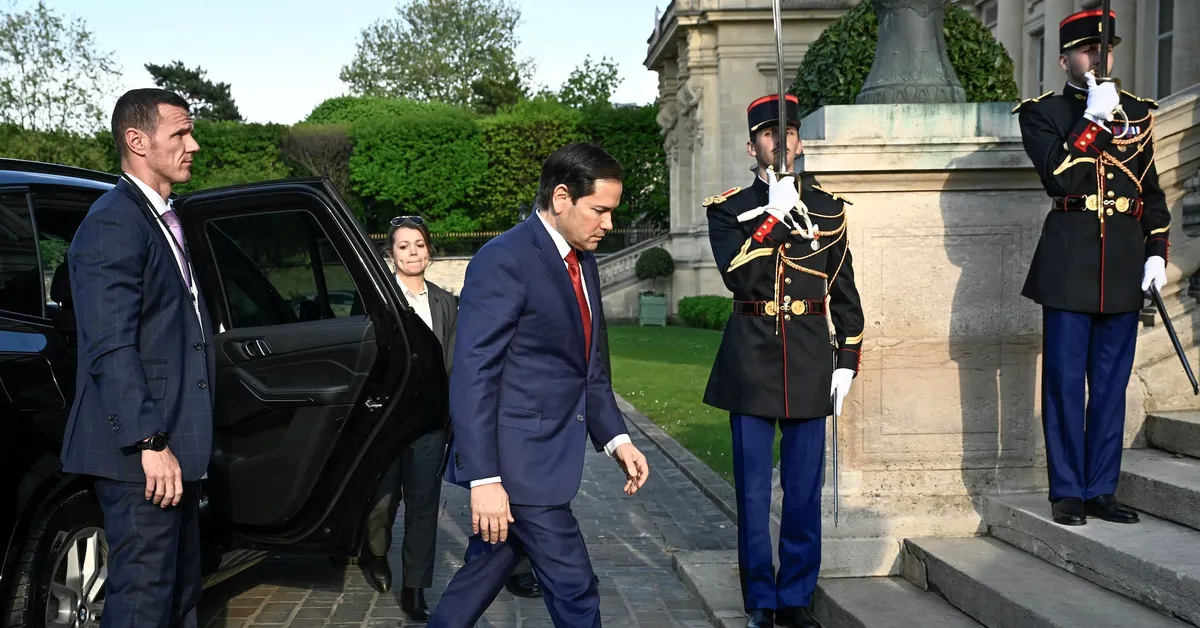
On April 18, U.S. Secretary of State Marco Rubio stated that President Donald Trump may withdraw from negotiations aimed at brokering a Russia-Ukraine peace deal within days unless there are clear indications of progress. Rubio emphasized the need for a swift assessment, declaring, “We’re not going to continue with this endeavor for weeks and months on end.” This statement followed a significant meeting in Paris with European and Ukrainian leaders, highlighting the urgency surrounding the situation.
Rubio reiterated the president's strong commitment to the peace process, mentioning that Trump has invested considerable time and effort into these negotiations. However, he also pointed out that there are numerous other pressing issues requiring the president’s attention. “This is important, but there are a lot of other really important things going on that deserve just as much, if not more attention,” Rubio remarked, indicating the complexity of the U.S. political landscape.
Despite the looming deadline, there are signs of progress in U.S. discussions with Ukraine. Trump indicated on Thursday that he anticipates signing a deal with Kyiv next week, which would grant the U.S. access to Ukraine's valuable minerals. This follows a previous attempt to establish a minerals pact in February, which faltered after tensions arose between Ukrainian President Volodymyr Zelenskiy and Trump, along with Vice President JD Vance, during Oval Office discussions.
After the Paris talks, which were marked as the first substantial and high-level discussions regarding Trump’s peace initiative involving European powers, Rubio reported that the U.S. peace framework was met with encouragement. Zelenskiy’s office characterized the talks as constructive and positive, indicating potential for future collaboration.
Rubio's comments reflect growing frustrations within the White House regarding the slow pace of progress in resolving various geopolitical challenges. Trump had initially promised to end the war in Ukraine within his first 24 hours in office, but this ambitious timeline has since been moderated as complexities have emerged. Rubio suggested that while achieving a peace deal will be challenging, there must be signs of feasibility in the near future.
During the discussions in Paris, the topic of U.S. security guarantees as part of any potential agreement was raised, although Rubio did not provide extensive details. He noted, “Security guarantees is an issue we can fix in a way that's acceptable to everyone,” but stressed the need to address larger challenges first. The timeline for achieving a peace deal remains uncertain, with Rubio acknowledging, “There’s no one saying this can be done in 12 hours.” Nevertheless, he expressed the desire to assess the extent of the divides between the parties involved and whether any progress could be made within the anticipated timeframe.
As the situation develops, the French presidency and foreign ministry have yet to respond to inquiries regarding the talks. The outcome of these negotiations could have significant implications for the ongoing conflict in Ukraine and the broader geopolitical landscape.